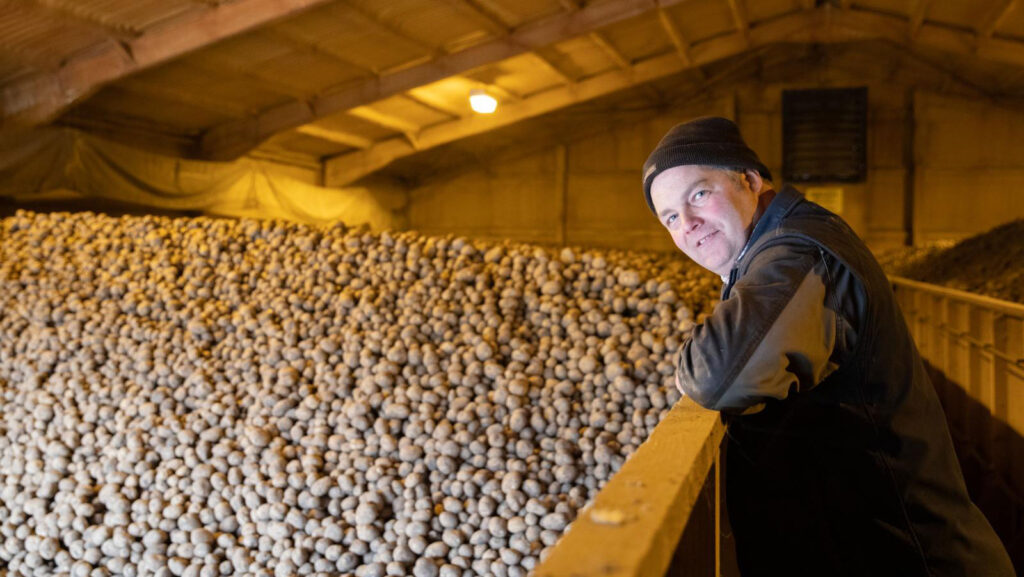Farmer Focus: This year’s potato yields hit record low
 © Angela Waites Photography
© Angela Waites Photography Firstly, some positive news. As a rule I dislike spring beans, mostly because they’re always late to combine, always need drying, and if it’s a dry summer, the yield can be terrible.
This year however, the weather suited mid-April sown beans, and they yielded 7t/ha (more than some of the wheat).
This was at 23% moisture, but still a record performance for us even after deducting weight lost during drying.
See also: New Group 4 spring wheat performs for flood-hit Lincs farmer
I harvested them in the first week of October, wetter than I’d like, but in doing so I managed to retain sufficient quality to make the grade for human consumption.
The premium for which just about covered the cost of drying, and I even managed to get the fields sown with wheat before the next deluge of rain.
Not so positive are the potatoes. In a nutshell, yields are the lowest across the board that I can ever remember.
Our average yield is hovering around 36t/ha against a contract average expectation of 49t/ha.
That’s a shortage of 30% with one field to lift, which isn’t likely to lift the figure. That’s going to put a huge dent in next year’s cashflow.
Working out why things are grim isn’t immediately obvious and is a combination of seed issues, a late, cold, wet planting, extreme temperatures in June, then two months of dull wet weather followed by baking weather which caused some crops to shut down in the important bulking period.
Our diligence with rhizoctonia seed treatments has borne fruit and lessened the pain, but our potatoes won’t break even this year.
A greater issue is a lack of fat on our backs to ride two poor years through.
Our data has never been so harvested, the hoops to jump through are becoming higher and more frequent, and costs an acre are rising much faster than contract prices a ton.
Contrary to belief, our time to complete the ever-increasing admin for the crop is not free either.
Warm, fluffy “enviro-marvellousness” and grant aid might look rosy, but it doth butter no parsnips when it comes to increasing our bottom line, which is essential if we are to continue riding the root crop roller coaster.


